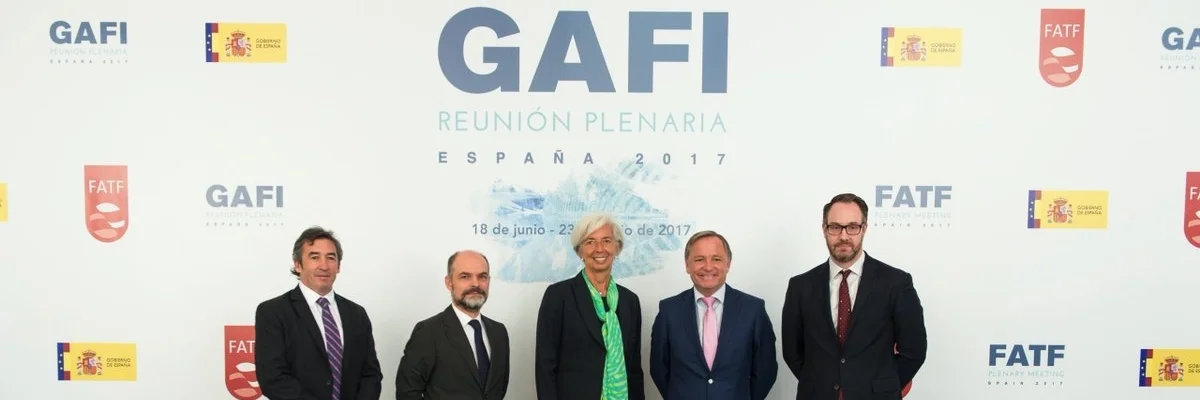FATF Faces Test of Fairness on Iran at Plenary Meeting
Next week, Iran is facing the end of a four month extension given by the Financial Action Task Force (FATF), a global standard-setting body, for the reform of the country’s AML/CFT regulations. Beginning in June 2016, Iran gave its political commitment to the action plan, accepting technical assistance in order to effectively implement the action plan. This political commitment saw Iran removed from the so called “black list,” the informal name given to the list of Non-Cooperative Countries and Territories (NCCT). The common practice in recent years has been to apply "countermeasures" against non-cooperative countries. With countermeasures suspended, Iran was moved to a list of “high-risk” countries subject to “enhanced due diligence.”
As per the FATF procedure, Iran can only be returned to the countermeasure list if it proves to be non-cooperative. It should be noted that no country has been added to countermeasure list merely because of less-than-perfect compliance; if that was the case, in this world which is full of corruption and terrorism, the list of countries against which countermeasures should apply would be far more extensive. No country has managed to achieve perfect compliance with all forty recommendations that form the basis of FATF’s guidelines.
Iran will be hoping for a further extension of suspension of countermeasures at next week's plenary of the FATF, as it is in the process of amending its national laws. Some FATF members have sought to characterize such extensions as exceptional. However, a quick glance at the list of countries currently in the gray list or those which managed to get delisted, points to the fact that extensions are a common procedure.
Countries such as Iraq, Syria, Vanuatu, and Yemen have remained on the gray list for many years. Countries such as Bosnia and Herzegovina, Uganda, Afghanistan, and Myanmar were all eventually delisted in recognition of progress in enacting the recommended reforms, but were given between two and six years in order to proceed with their action plans. Iran has been under much more significant pressure, opening FATF to charges of unfair treatment.
For the purposes of a closer comparison, we can look to the case of one country delisted from the so-called gray list in 2017. Based on FATF’s latest evaluation, this country is non-compliant with numerous recommendations outlined in Iran’s action plan. First, the country is non-compliant in terms of “criminalizing terrorist financing.” Second, the country is non-compliant in terms of “Targeted financial sanctions related to terrorism and terrorist financing (identifying and freezing terrorist assets in line with the relevant United Nations Security Council resolutions).” Third, the country is only partially compliant with measures for “customer due diligence.” Fourth, the country is only partially compliant with establishing an effective “Financial Intelligence Unit.” Fifth, the country is non-compliant with wire transfer controls. Finally, the country is only partially compliant with recommendations on criminalizing anti-money laundering.
It is clear that this particular country has deficiencies equal-to or greater-than those of Iran as measured by Iran’s action plan. Yet the country was never included in the FATF blacklist and even managed to be delisted from the gray list as well. This raises the question—is FATF applying double standards against Iran?
FATF emphasizes that it is a technical and not a political body and that all countries are treated equally. Impartiality is important for a global standard-setting body, which seeks to ensure that countries cannot seek to politically undermine one another.
Iran has attended FATF’s face-to-face meetings and answered extensive questions. Moreover, the FATF recommendations call for the enacting of six laws: criminalizing money laundering (i.e. the AML law), criminalizing financing of terrorism (i.e. the CFT law) and four other laws regarding joining four UN conventions. Of these four laws, two had already been approved by the parliament—Iran has joined the UN Anti-Corruption and Vienna conventions. The remaining laws are being deliberated. These legislative measures are among the most difficult recommendations to enact, as they require the coordination of government agencies, parliamentarians, and other supervisory bodies and therefore it seems that the action plan of Iran has been a difficult one with a rather short deadline provided.
Passing a single law may require 18 months of work, as it needs to be reviewed by the committees of the government and the cabinet, parliamentary commissions and then the parliament itself, and finally the powerful Guardian Council. Iran has achieved a degree of compliance with some aspects of the action plan, a fact acknowledged by FATF itself. Therefore, it would be illogical for the country to be considered non-cooperative.
The authority of FATF derives from the number of countries that have trusted it as a technical body. Therefore, this is not only a sensitive juncture for Iran, but also for the legitimacy of FATF, which must strive to preserve its reputation as an impartial technical body that treats all countries equally.
Photo Credit: FATF Twitter




